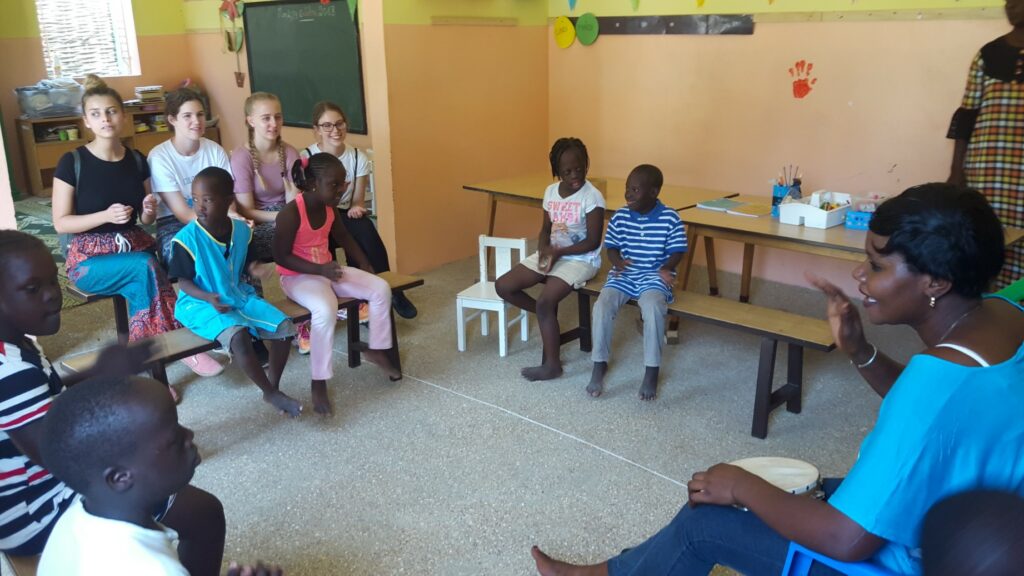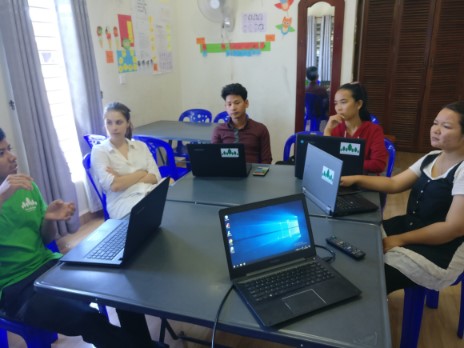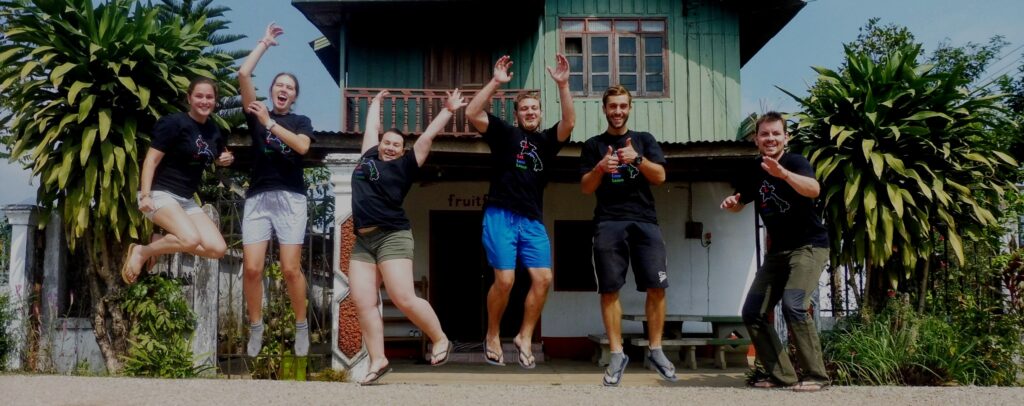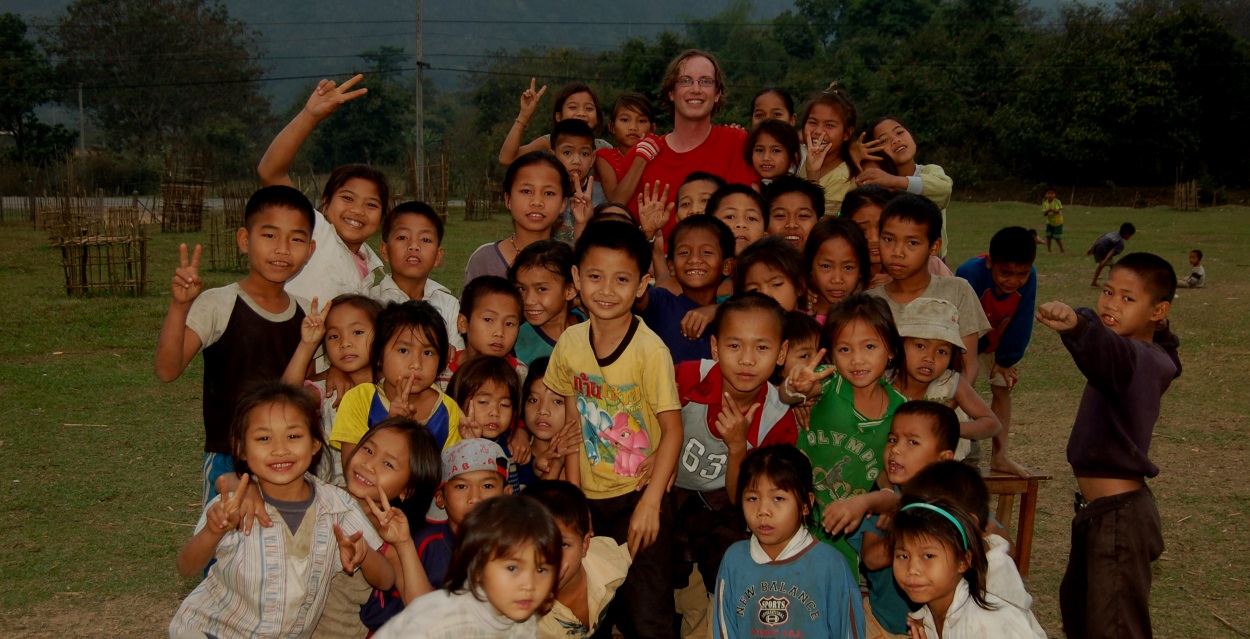Lately there has been a lot going on around “voluntourism” (volunteer tourism). Many critics have a lot to say about volunteering abroad and articles have been published in various media.
Volunteer Abroad Alliance certainly supports this, but unfortunately this critical view also becomes a generalizing negative view of volunteering abroad, which is detrimental to our projects. Below you will find 8 statements made by “critics” about voluntourism, statements that do not apply to our projects.
We presented these statements to Ward Reekmans our chairman.
Voluntourism proposition 1: Volunteering abroad is for commercial organizations that make money from the good intentions of volunteers.
There are indeed organizations that make a lot of money from the good intentions of volunteers. Some of them charge thousands of dollars to volunteer for just two weeks.
On the other hand you have Volunteer Abroad Alliance, an alliance of several non-profit organizations committed to raising sufficient funds for their projects in developing countries. We are not going to lie, there are simply costs associated with volunteering abroad. If our projects could support these costs, we would rather allocate these budgets to local staff.
Transparency is perhaps the most important topic within our alliance, you pay the actual costs specifically for your stay directly on site to the person who arranges this for you. This way you can be sure that nothing gets stuck at different intermediate stations.

Voluntourism statement 2: Volunteer projects are not projects but “activities” that are organized for tourists.
Our alliance consists only of registered development organizations and has been committed to their projects with great enthusiasm for years. These organizations work closely with the local population and know perfectly well what is and is not possible. Together they determine the conditions that volunteers must meet. What is not possible in one project may be the ideal solution in another. This ensures a positive interaction in our alliance and we can find a perfect project for almost every candidate.
We also believe that you cannot send volunteers to projects that you are not involved in. Bee Volunteer Abroad Alliance each project is started by one of the participating organizations together with their local partner organisation, resulting in a double validation of the projects.
All organizations must also complete a comprehensive questionnaire to assess whether their projects are accessible to volunteers, as well as whether organizing volunteering in their projects is feasible.
We regularly receive direct requests from local organizations wishing to join the alliance, it would be easy to say yes to their request right away. However, we will not respond to their request because these projects have not been screened by any of the organizations active in our alliance.
Our alliance also does not have the ability to screen a local project if no organization from our alliance is active in the area. We are also aware that visits of a few days are not enough to evaluate a project. You have to really understand the country, its customs and culture before you can make a statement about it. This is only possible if you have been active in the country in question for a long time, like any organization involved in Volunteer Abroad Alliance. So yes, we would like to see more projects in our alliance, but not without thorough evaluation and validation.
Voluntourism proposition 3: Volunteers take work away from the local population
This is a generalization that would be true if the projects had sufficient resources to employ local staff, but that is not the case. The subsidy regulations are strict and most of the subsidies awarded may not be used for wages. All organizations in our alliance work hard to raise funds, which we use for the development of our projects.
Recently I was invited to an event about volunteering abroad. In the run-up to this event I could read the following: “volunteers depriving the local population of work by building a school”. I don't drink much coffee, but when I read this statement, I almost choked on my coffee. I must say I was ashamed; what if one of our volunteers reads such a statement?
As an example I take usschool building project in Laos. Our way of working has ensured that more children are reached by saving money on aannemers. Thanks to the amount saved, we have now been able to supply an extra school to a few hundred children.
The volunteer does not receive any money for his work abroad. Many projects would not exist without the help of the organizations in the alliance, let alone an opportunity to work within these projects. Thanks to the free work that the volunteer provides, funds can be used more efficiently to realize the mission of the organization.
As an organization it is also easier to stop our volunteer activities if a project fails, rather than firing a local person. The latter is never fun when you're working on a social project. The chance of dismissal is real, as there is no certainty that sufficient money will be raised to pay the wages. I myself have already been in the situation that I had to inform a local employee that the project has been stopped due to insufficient income. This is very sour, especially if you have to do it via Skype and you can't get the message across in person.

Voluntourism statement 4: Volunteers don't make an impact
Such a statement puts a bomb under voluntary work in general. There are many fine examples of young people involved in youth movements, playground activities, etc. My own children are members of a youth movement and most of their leaders have no “pedagogical” training either, but I still see a smile on the face face of my children and the same thing happens in our projects.
However, not everyone can participate in every project (for example: medically). That is why we have set clear conditions for each project. Each volunteer must also 'apply' to a project via a comprehensive application form. It is the responsible mentor who, together with the local team, decides whether the applicant meets the requirements.
As an organization, you never assume that the people in the community you help don't have the capacity to perform their duties. I believe that you cannot simply judge candidates because I am convinced that everyone has something to offer. So yes, students and young people can really make a difference.
In my projects in Laos, for example, the local population is the requesting party for more volunteers. They have lost faith in the local authorities because corruption is everywhere. They look for enthusiastic volunteers who care about them as opposed to the government.
With Volunteer Abroad Alliance We ensure that the volunteers are properly prepared and supervised. We offer a mentor for every volunteer, this mentor understands the country and the differences with the western world. Once in the field, they are also supervised by a local team member who understands the customs and traditions of the population even better than the mentor and can perfectly guide the volunteer.
Voluntourism thesis 5: Volunteering abroad is paternalistic.
It is indeed true that volunteers must realize that they are not going to change the world, that is also stated in our ethical code, just as volunteers can read that they must work together with respect for the local population.
What I find paternalistic is that some critics speak of "trained" volunteers. As if only highly educated people are the ideal candidates. I do not expect such statements from “experts” in development cooperation, because you say so indirectly that the local population is not “educated”. Technically trained volunteers with knowledge of the latest techniques can certainly assist the local population in their tasks because the knowledge of the latest techniques is not always accessible in developing countries.
The same so-called experts and critics of volunteering abroad will also 'advise' organizations on the conditions volunteers must meet. How can one give 'general' advice if they don't know how each project works? Never mind that they even visited the projects. There is no blueprint for development cooperation, just like there is no blueprint for volunteering, because every project is different.
Voluntourism statement 6: volunteers are spoiled
Don't call it spoiled but prepared. We take the preparation seriously, it would indeed be easier to place volunteers somewhere in a gated resort or 4**** hotel. Of Volunteer Abroad Alliance we want to immerse volunteers deeply in the local culture and that includes housing. Otherwise, volunteers will remain in their western habits, they will not have tasted the country and you run the risk of ending up in an “us versus them” situation.

Voluntourism statement 7: Short periods of volunteering are not good
What may be too short for one project is not necessarily too short for other projects.
The experts of the participating organizations in our alliance, together with their local team, are not impulsive when they set the minimum period. After all, they know very well what is and is not feasible locally. There is no such thing as a blueprint, so it is not possible to generalize. It differs from project to project but also from destination to destination.
I once spoke to a principal of a primary (public) school in Laos, and yes I speak Lao. He and his colleagues asked volunteers to teach English at his school because they had no teachers who spoke English. He told me that the duration is not important, because without volunteers at his school the students would be withheld from the English lessons while these lessons are part of the official curriculum.

Voluntourism statement 8: Volunteers don't always speak the local language
I just quoted the example of the director in Laos who asked volunteers to teach English. If I am to believe the critics, I should only use volunteers who speak Lao and they are not randomly available. Have these critics spoken to the locals themselves, in their language?
Let's stop sending experts, diplomats, expats etc. because I'm convinced that the majority of them don't speak the local language, let alone the local dialects.
However, speaking the local language can be useful. However, the language problem can easily be prevented with good guidance of the volunteer by the local project team, which is guaranteed by Volunteer Abroad Alliance
What is your final conclusion?
First of all I want that candidate volunteers don't take all criticism too seriously, at Volunteer Abroad Alliance we know what we are doing.
In addition, I would like to ask all critics to stop with their negative generalizations and tell more about the success stories. If the critics, journalists, etc. still say that volunteering abroad is harmful, I would ask them to name the “volunteer companies”.
Today's generalizations make it for small nonprofits, such as Volunteer Abroad Alliance, not easier to find enough volunteers. Maybe the critics should come and talk to us, I'd like to invite them over for a cup of coffee and promise I won't choke.


